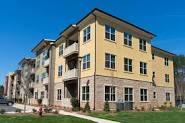
By Jill Swanson, ERLS Staff Attorney
In South Dakota, a tenant can be evicted from their home in as little as seven days. The process is quick and there are very few ways to successfully challenge an eviction notice. However, a tenant does not have to leave their home unless there is a court order requiring them to leave. This article contains a brief explanation of the eviction process.
Notice to Quit. A landlord is required to serve a tenant with a Notice to Quit in order to start an eviction proceeding. This document explains to the tenant that they have violated their lease agreement and the landlord is preparing to evict them for lease violations. Common violations include: paying rent late, not moving after the end of the lease, or failing to keep the home reasonably clean. South Dakota law does not establish a right to cure once a Notice to Quit is served. This means that if a tenant fails to pay rent on time and then receives a Notice to Quit, the landlord is not required to accept a late payment and withdraw the Notice to Quit. Individuals who rely on State, County, or Municipal financial assistance to pay rent are at risk for eviction if the financial assistance payment comes later than the 3rd of the month. You do not have to leave the home once you receive a Notice to Quit, a tenant is legally entitled to remain in the home until there is a court order telling them to leave the home.
Summons and Complaint. Three days after a Notice to Quit is served, a landlord can file a Summons and Complaint. The Summons and Complaint is submitted to the county court explaining why the landlord wants to evict the tenant and asks for a hearing in front of a Judge. A tenant has four days to file an Answer, the formal response, to the Summons and Complaint or a default judgment can be entered. South Dakota law does not require a landlord to file the Summons and Complaint with the clerk of courts when they serve the tenant. It is possible that a tenant can go to the courthouse to file their Answer to the Summons and Complaint but be turned away by the Clerk of Courts because there is no file open yet at the courthouse. In this case, the tenant would need to locate the attorney for the landlord, or the landlord’s office if they are unrepresented, in order to file the Answer within four days.
Eviction Hearing. Four days after the Summons and Complaint is served the landlord can request a hearing. At the hearing the Judge will ask the landlord, or their attorney, why the eviction is necessary and then ask the tenant for any defense to the eviction. There are very few defenses available for an eviction. A tenant who fails to pay rent three days after it is due will almost certainly be evicted unless they can prove the landlord did not follow the proper procedure for the eviction. At the end of the hearing, the Judge will sign an order for an eviction and state how long the tenant has to leave their home. A tenant might be ordered to leave by the end of that day or they might be given as long as a week to leave in very rare circumstances.
South Dakota law has no right to cure a Notice to Quit, no requirement to file a Summons and Complaint with the court when it is served on the tenant, and very few defenses to an eviction proceeding. Even though a tenant does not have to leave their home without a court order, an eviction is almost impossible to stop.
This post is not intended to constitute legal advice. If you are facing an eviction please call the Legal Hotline at 1-877-870-1250 or apply online at www.sdlawhelp.org




